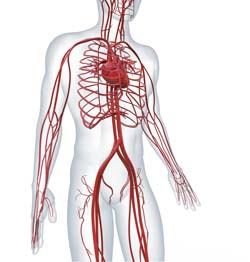Cold Water Immersion Can Have Benefits
From:
Medscape Staff, December 08, 2022
“Bathing in cold water or ice may cut “bad” body fat and reduce the risk of disorders such as diabetes, but other claims of health benefits are less defined, according to researchers from the Arctic University of Norway and the University Hospital of North Norway.
WHAT TO KNOW:
- Immersion in cold water has a major impact on the body. It elevates the heart rate and has positive effects on brown adipose tissue, a type of “good” body fat that is activated by cold and may protect against obesity and cardiovascular disease.
- Exposure to cold water or cold air also appears to increase the production of the protein adiponectin by adipose tissue. Adiponectin plays a key role in protecting against insulin resistance, diabetes, and other diseases.
- Repeated cold-water immersions by inexperienced as well as experienced swimmers during the winter months significantly increased insulin sensitivity and decreased insulin concentrations.
- Numerous health and well-being claims from regular exposure to the cold, such as weight loss, better mental health, and increased libido, may be explained by other factors, including an active lifestyle, trained stress handling, social interactions, as well as a positive mindset.
- Those seeking to voluntarily practice cold-water emersion need to be educated about possible health risks associated with taking a dip in icy water, which include the consequences of hypothermia, and of heart and lung problems, which are often related to the shock from the cold.”
Eating Walnuts and Other Tree Nuts May Lower Cholesterol
In a 2018 meta-analysis and systematic review published in the American Journal of Clinical Nutrition, researcher Marta Guasch-Ferré and colleagues shared their analysis of 26 studies of the effects of diets rich in walnuts on blood lipids and cardiovascular health. The studies included a total of 1059 participants. The walnut-heavy diets were associated with lower total cholesterol, lower LDL (“bad”) cholesterol, and lower triglyceride concentrations. They were also associated with lower apolipoprotein B, a component of LDL.
When walnut-enriched diets were compared to American diets and Western diets, the benefits of the added walnuts on total cholesterol and LDL cholesterol were even more dramatic. The researchers described a Western diet as high in red and processed meats, high-fat dairy products, processed and artificially sweetened foods, and with little intake of fruits, vegetables, fish, legumes, or whole grains.
Compared to control diets, the diets rich in walnuts did not cause weight gain or an increase in body mass index (BMI), and they also did not affect blood pressure.
The studies included in the meta-analysis lasted from four weeks to one year, with a mean length of 8 weeks. The amount of walnuts ranged from 15 to 108 grams per day. In most cases, participants were given whole walnuts to incorporate into whatever daily meal plan they were following, which in some cases was their usual diet and in others was an intervention diet such as a Mediterranean diet or a low-fat diet.
Another meta-analysis published in the American Journal of Clinical Nutrition in 2015 by Liana C. Del Gobbo and colleagues analyzed 61 studies about the effects of tree nuts on cholesterol and related measures, and similarly found that eating tree nuts lowers total cholesterol, LDL cholesterol, ApoB, and triglycerides. Del Gobbo and colleagues wrote, “The major determinant of cholesterol lowering appears to be nut dose rather than nut type.” Tree nuts include walnuts, pistachios, macadamia nuts, pecans, cashews, almonds, hazelnuts, and Brazil nuts.
NAD Precursor May Improve Cardiovascular Health
 NAD, or nicotinamide adenine dinucleotide, is found in all living cells. Its oxidized form, NAD+, rose in popularity as a nutritional supplement following a 2013 Harvard study that suggested it might slow aging in mice. A 2018 article by researcher Christopher R. Martens and colleagues in the journal Nature Communications reports that a precursor vitamin to NAD+ called nicotinamide riboside (NR) can stimulate NAD+ metabolism in healthy middle-aged and older adults compared to placebo, which might improve cardiovascular health. In the crossover study, participants received NR or placebo for six weeks, and then received the other option for a second six-week period. NR was associated with increased NAD+ metabolism.
NAD, or nicotinamide adenine dinucleotide, is found in all living cells. Its oxidized form, NAD+, rose in popularity as a nutritional supplement following a 2013 Harvard study that suggested it might slow aging in mice. A 2018 article by researcher Christopher R. Martens and colleagues in the journal Nature Communications reports that a precursor vitamin to NAD+ called nicotinamide riboside (NR) can stimulate NAD+ metabolism in healthy middle-aged and older adults compared to placebo, which might improve cardiovascular health. In the crossover study, participants received NR or placebo for six weeks, and then received the other option for a second six-week period. NR was associated with increased NAD+ metabolism.
The researchers suggest that more research is needed to investigate whether chronic NR supplementation might be able to reduce blood pressure and arterial stiffness.
Teens with Bipolar Disorder Have More Inflammation, Cardiovascular Risks
 Bipolar disorder has been linked to cardiovascular disease. New research by Jessica Hatch and colleagues shows that inflammation may be at the root of this connection. At the 2016 meeting of the Society of Biological Psychiatry, the researchers showed that teens with bipolar disorder have higher levels of inflammatory marker interleukin 6.
Bipolar disorder has been linked to cardiovascular disease. New research by Jessica Hatch and colleagues shows that inflammation may be at the root of this connection. At the 2016 meeting of the Society of Biological Psychiatry, the researchers showed that teens with bipolar disorder have higher levels of inflammatory marker interleukin 6.
Hatch and colleagues assessed the blood of 60 teens with bipolar I or II disorder and 20 healthy controls for a variety of biomarkers, including the inflammatory proteins interleukin 6, interleukin 10, and TNF alpha; VEGF, which is responsible for the production of new blood vessels; and brain-derived neurotrophic factor (BDNF), which protects neurons. The researchers also assessed the participants’ cardiovascular health, performing the carotid intima media thickness test to estimate how much plaque is in the arteries, and measuring how well the patients’ arteries dilate in response to changes in bloodflow.
Participants with bipolar disorder had higher levels of interleukin 6 than healthy controls, regardless of whether their bipolar illness was symptomatic. Low BDNF was linked to greater carotid intima thickness in participants with symptomatic bipolar disorder, and vascular measurements suggest a possible mechanism by which bipolar disorder increases cardiovascular risk.
Over Half of Russian Women May Be Depressed
In a 2013 article in the journal European Psychiatry, in which researcher Valery V. Gafarov examined depression’s influence on cardiovascular health in Russia, an astonishing 55.2% of women aged 25–64 years in the study were diagnosed with depression. The study, in which 870 women in the city of Novosibirsk were surveyed over 16 years from 1995 to 2010, was part of a World Health Organization program called “MONICA-psychosocial.”
The researchers collected information on the incidence of myocardial infarction (heart attack), arterial hypertension, and stroke among the women. Over the 16 years of the study, 2.2% of the women had heart attacks and 5.1% had strokes. Women with depression were 2.53 times more likely to have a heart attack and 4.63 times more likely to have a stroke than women without depression.
Among women with average education levels, married women with depression were more likely to have heart attacks, hypertension, and strokes. Hypertension was more likely among women who worked as managers or light manual laborers.
Cardiovascular Fitness At Age 18 Predicts Later Risk Of Depression In Men
 Research has connected cardiovascular fitness with depression risk and treatment. A Swedish study published last year in the British Journal of Psychiatry examined records of men conscripted into the military at age 18 and compared their cardiovascular fitness at the time with hospital records from later decades. Low cardiovascular fitness at the time of conscription was associated with increased risk for serious depression.
Research has connected cardiovascular fitness with depression risk and treatment. A Swedish study published last year in the British Journal of Psychiatry examined records of men conscripted into the military at age 18 and compared their cardiovascular fitness at the time with hospital records from later decades. Low cardiovascular fitness at the time of conscription was associated with increased risk for serious depression.
Editor’s Note: This study provides more evidence that exercise, which increases cardiovascular fitness and decreases many of the elements of the metabolic syndrome, is good for cardiovascular and neuropsychological health, including mood stability. It is noteworthy that exercise also increases both brain-derived neurotrophic factor or BDNF (important for neural development and long-term memory) and neurogenesis (in animals), effects shared by almost all treatments with antidepressant properties. Making exercise a routine part of a regimen aimed at medical and psychiatric health is a great idea.



